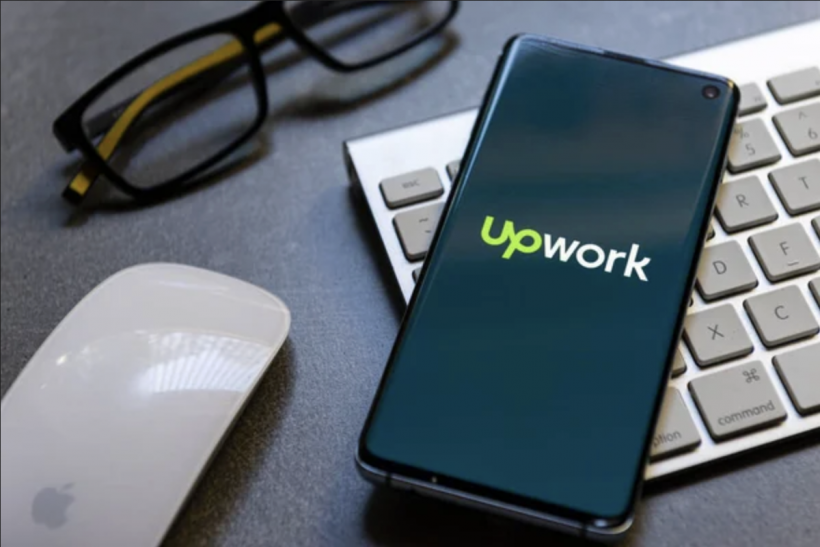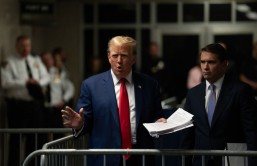
(Photo : Upwork Freelancing Platform via Getty Images)
In an age dominated by digital media, the integrity of online information stands paramount. The internet, while a treasure trove of information and a haven for knowledge seekers, is also a breeding ground for fake news and misleading. The very platforms that have democratized knowledge and made it readily available are also susceptible to misuse. Among these, Wikipedia, due to its public editing feature, is an attractive target for online frauds, but equally troubling is the growing prevalence of 'Wikipedia clones' - sites that mimic the original in style but lack its credibility, integrity, and robust editorial oversight.
The rise of Wikipedia clones contributes to the already complex web of online information. These websites often use a similar layout and design to create a sense of familiarity and trust among users. However, their credibility is far from that of the original. Often, these clones are used as platforms to promote false or misleading information, or to lend an air of credibility to otherwise questionable entities. The business of creating and manipulating such clones is an industry itself, and digital freelancing platforms such as Upwork are, unfortunately, becoming a marketplace for these practices.
A recent incident involving a freelancer on the renowned job platform, Upwork, raises critical questions about trust, transparency, and the potential misuse of digital platforms. The person in question, Sonali Kavdia, is a self-proclaimed Wikipedia editor who is now in the center of an alleged scheme, promoting their own lesser-known platform - Wikitia.
As part of an in-depth investigation, we delved into the experiences of one of Kavdia's clients, who wished to remain anonymous. This client had commissioned Kavdia to create a Wikipedia page for their project. Instead, Kavdia claimed their project did not meet Wikipedia's notability criteria, recommending the lesser-known Wikitia website as an alternative, which is an unregulated clone of Wikipedia.
Feeling misled, the client consulted with multiple freelancers and editors, all of whom confirmed the project's eligibility for a Wikipedia page. However, when the client confronted Kavdia about the discrepancy, she failed to provide adequate justification or evidence for her initial assertion, raising the client's suspicions about Kavdia's credibility and intentions.
This client's experience raises red flags. In an attempt to shed the light on Kavdia's practices, the client shared their story publicly, warning others about their unfortunate ordeal. The client writes, "Sonali Kavdia presents herself as a Wikipedia editor but, in reality, she advocates for another platform - a site of no value which has been blacklisted by Wikipedia."
The client further claimed that Kavdia refused to disclose the identity of the alleged Wikipedia administrator who recommended creating a page on Wikitia. This lack of transparency coupled with the client's discovery that Kavdia asked for a 5-star review, violating Upwork's policies, has led to a formal complaint lodged with Upwork's customer service.
The narrative depicts Kavdia not only as a violator of Upwork policies, with allegations ranging from misrepresentation of work nature to inappropriate solicitations for positive reviews, but also as a misleading entity which uses obscure practices to promote their own business under the umbrella of a reliable website. The impact of Kavdia's actions, however, extends beyond a single dissatisfied client. It threatens the trust built over years in digital platforms like Upwork and raises concerns about the authenticity and integrity of freelancers.
The alleged deceptive practices suggest that a line of distinction must be drawn between professional Wikipedia freelancers and those capitalizing on clients' needs while exploiting copycat platforms. With the proliferation of misinformation, it becomes increasingly critical for digital platforms to enforce stringent measures to ensure transparency and protect clients from potentially fraudulent activities.
It's crucial to remember, however, that while this investigation brings one case to the forefront, it does not imply that all freelancers engage in such practices. It merely emphasizes the need for vigilance in a world increasingly reliant on digital platforms.
In the digital wild west of freelance work, this case serves as a stark reminder: All that glitters is not gold. As users of these platforms, it is essential to question, verify, and act responsibly, holding those accountable who attempt to undermine the foundation of trust that online freelancing is built upon. Ensuring the validity of information and the credentials of those who provide it are crucial steps towards maintaining the integrity of the digital landscape. Just as we need to be aware of the potential pitfalls of Wikipedia clones and their dubious credibility, we must also be vigilant about the individuals who promote these platforms.
The incident with Sonali Kavdia serves as an important wake-up call, prompting us to continually scrutinize the dynamics of digital freelancing platforms. In the vast universe of online freelancing, it's essential to navigate with a discerning eye, and a healthy dose of skepticism. After all, in an era where fakes are aplenty, it is the due diligence of users that ultimately upholds the trust integral to these digital platforms.
* This is a contributed article and this content does not necessarily represent the views of hngn.com








